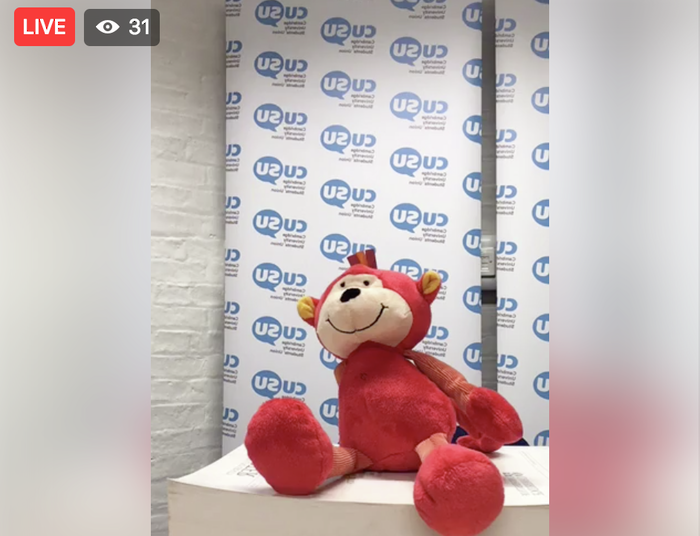CUSU Super Council – everything you need to know
A gaping budget deficit, a vote on NUS affiliation and an overhaul of the student union’s governing body. Varsity breaks down the key issues

Update 4:52pm – A new section has been added following an emergency motion on the Ethical Affairs budget.
In what looks set to become a yearly tradition, the final CUSU Council of 2016–17 – taking place tonight – is likely to encompass a number of heavy topics, with a budget deficit, NUS affiliation and trustee appointments on the agenda, among several other smaller discussions. Varsity has broken down the key topics.
Unless there is a crisis, this will be the final Council of CUSU president Amatey Doku and his team of sabbatical officers. If Doku was hoping for a quiet ending, he will be disappointed: there’s a lot of work to be done as he seeks to assure the continuation of the student union’s operations going into president-elect Daisy Eyre’s term from July. Doku himself has put forward seven motions, on a variety of topics.
Where last year’s budget was controversial, this year’s is simply a bit disastrous.
Council, which is comprised of JCR and MCR presidents and external officers, as well as faculty representatives, can pass motions by simple majority. With each motion, there is an opportunity for speeches for and against, amendments, and questions. All other students are allowed to attend, but cannot vote. While a repeat of the two gargantuan Council sessions of last year has been avoided, it could be a long one. So, without any further ado, here is Varsity’s topical guide to CUSU Super-Council 2017.
Budget and financial enquiry

Where last year’s budget was controversial, this year’s is simply a bit disastrous. After it was revealed at the last Council that CUSU was anticipating total losses of about £300,000 since the financial year beginning in 2014, the student union has revised its story slightly. What has not changed is the overall picture: that its finances – which have relied for some time on a single publishing contract to turn a surplus – are not in a great spot. At this point, a request for emergency funding from the University in the near future looks inevitable. On Friday, a University of Cambridge spokesperson declined to say whether such a request had already been received.
As things stand, Council will have to give its approval to a budget which proposes that the student union runs a £75,000 deficit over the next financial year. CUSU have proposed a number of cuts to reduce this figure, but their effect will only be small – especially in the context of a spike in NUS fees (see below). As questions still loom around precisely how and why such a situation emerged, the motion to ratify the budget is accompanied by another: a call from Wolfson’s student union for an enquiry into how CUSU ended up in this situation.
Varsity’s hallowed archives threw up no example of a precedent for such an undertaking, and the motion which has been submitted is deliberately vague in order to prompt Council into shaping it, so it is difficult to know what to expect from it. The biggest challenge it faces, if recent efforts like Doku’s aborted policy scrutiny forum are anything to go by, is a hesitation among students to volunteer their time as part of the enquiry committee.
NUS affiliation and policy adoption
Following a turbulent year for the National Union of Students, yet another referendum on the University’s affiliation could be on the cards. A motion on CUSU’s continued affiliation to the NUS is meant to be submitted to Council annually, and has usually passed without significant issues. Last year, Council failed to submit the affiliation motion, with re-affiliation instead decided by a tight referendum. The intervening period has been a difficult one for the NUS, which has come under continued fire for alleged institutional anti-Semitism. This year’s vote has already been postponed once, being delayed from February until after the NUS conference which was held at the end of April. Doku defended the delay as a chance for CUSU to consider more carefully the increased fee.

After it was revealed that the affiliation fee paid by CUSU to the NUS had increased twentyfold over the course of the last year, some exigent questions are likely to be raised at Monday’s Council meeting. The motion, proposed by Doku and seconded by CUSU Education Officer Roberta Huldisch, claims that “overall, financially, CUSU benefits from being part of the NUS as outlined in the supporting documentation”. However, if the motion fails to pass, the affiliation question may be posed to the wider student population in a repeat of 2016’s affiliation referendum. Anti-NUS sentiment is still strong in parts of the student population, but there’s been no sign yet of the energy that last year lead to hundreds of students signing a petition calling for a referendum. The issue is a particularly pertinent one for Doku, who has recently become an NUS Vice-President-elect.
Huldisch has also proposed a motion asking CUSU to support the arrangement of an extraordinary NUS conference, where the NUS’ new ‘Democracy Review’ can be debated and ratified. The Review, hailed by Huldisch in the motion as “arguably the most significant overhaul of NUS democracy in its history” was voted on at the NUS National Conference last month, but is not valid until it is ratified at a second conference. The motion proposed various and wide-ranging structural changes, in the hope of making the NUS’ democratic process more accessible and accountable. These include greater regional organisation, replacing jargon in meetings and literature, publishing speeches and manifestos online, and making delegates’ voting records public. Huldisch is calling for this conference to be called an extraordinary meeting, in order to encourage discussion of what was a controversial vote at last month’s conference.
These are not the only NUS-related motions to be discussed on Monday: Doku has also proposed a motion calling for CUSU to adopt the recommendations made to students’ unions in the NUS’ recently published report into the experiences of Jewish students. Following allegations of anti-Semitism levelled at outgoing NUS President Malia Bouattia, the report makes four recommendations, including the provision of a student union officer responsible for engaging with Jewish students. As of yet, no one has been selected to take up the role, but according to the motion, the measures “go some way into ensuring that CUSU plays its role in ensuring that Jewish students feel safe and welcome at Cambridge”. The motion also proposes that CUSU investigate the provision of Kosher food, and consider how timetabling at the University impacts Jewish students.
Appointment of new trustees and expansion of board
In response to recent enquiries about the funding situation, Doku has repeatedly stressed that CUSU will be “under new management” from July. As well as new sabbs, this refers to an unusually high turnover of trustees, who make up the board which steers CUSU and makes decisions about its long-term aims. Trustees are also responsible for the student union filing its annual financial reports to the Charity Commision; this year’s are now 15 days overdue. There are usually nine trustees: four sabbatical officer trustees, two external trustees who are not part of the University, two general student trustees and the president.
There are three motions pertaining to Trustees, designed to address issues of quoracy and oversight:
Expanding the board size from nine to 11
Appointing three new external trustees
Appointing two new student trustees
The external trustee appointments pending approval are Gareth Marlow, a former chair of the Graduate Union; Hachimi Maiga, a consultant at Ernst & Young; and Hannah Thackwray, who works in external relations, events and fundraising activity at Queen’s Gate School in South Kensington. The student appointments are Daniel Dennis, LGBT+ officer at Darwin; and Helen Jennings, vice-president of Pembroke’s student union. All are fresh faces to CUSU governance except Marlow, who is being reappointed having held the position since 2013. Their approval is unlikely to be met with any significant resistance.
The new board, which will probably meet for the first time in July, faces a number of immediate challenges. As well as tackling CUSU’s current funding issues, they will be responsible for devising a new strategic plan, outlining the student union’s goals for the next few years. CUSU have failed to meet any of the key goals in its current plan, which expires at the end of this year. These include a merger with the Graduate Union (see below), which was blocked, and higher targets for Council turnout, which it has missed. The new trustees will have to make tough decisions about the student union’s management and funding, and whether the time has come for CUSU to make significant changes to its current long-term strategies.
Other motions

● Funding a society for male survivors of sexual abuse: The motion proposes that CUSU allocates £250 from its free budget to fund training and resources. The society will arrange meetings, lead by a trained facilitator, where male survivors of sexual abuse can discuss their experiences. It could potentially become affiliated to CUSU as an autonomous student group in future.
● Women’s Campaign’s constitution amendments: If passed, a non-binary representative position will be created on the Women’s Campaign Executive. The motion, proposed by Women’s Officer Audrey Sebatindira, also asks that liberation representatives are created in future without the need for a vote at Council, saying “it is inappropriate for people who are not members of a liberation group to vote on liberation issues in Council”.
● Funding Cambridge Humanities Review: Council have been asked to pay £850 from their free budget to help cover costs associated with the journal, which provides “a platform for high-quality student writing on art, literature, intellectual history, music, and other branches of the humanities”
● £400 for cake and consultation: The ‘Have Your Cake and Eat It’ campaign would see CUSU sabbatical officers visiting colleges in the coming weeks of Easter term to discuss their work, encourage students to vote and “give students a much needed afternoon break from the library”.
● ‘Memorandum of Understanding’ with the Graduate Union: The relationship between CUSU and the Graduate Union (GU) has historically been marked by tension, but it would seem both sides are seeking reconciliation: the motion proposes the creation of a ‘Memorandum of Understanding’ in order to “ensure consistent long term cooperation” between the two student unions. How “long term” this arrangement will actually turn out to be remains to be seen, as the future of the Graduate Union has faced uncertainty for over two years. A working group established in 2015 reviewed whether the two organisations, which share a building at 17 Mill Lane, should be merged. At the end of the review, the University Council ruled they should remain separate
● Funding CUSU Ethical Campaigns: Proposed by Alice Guillaume of the Zero Carbon society, the motion would see £400 reallocated to CUSU's Ethical Affairs campaigns from its elections budget, which currently stands at £2000. The sum would reverse the £400 deduction previously made to the Ethical Affairs campaigns' budget.
 Features / Beyond reality checkpoint: local businesses risking being forced out by Cambridge’s tourism industry15 October 2025
Features / Beyond reality checkpoint: local businesses risking being forced out by Cambridge’s tourism industry15 October 2025 Arts / Why Cambridge’s architecture never lives up to the ‘dark academia’ dream 17 October 2025
Arts / Why Cambridge’s architecture never lives up to the ‘dark academia’ dream 17 October 2025 News / How much does your college master earn?17 October 2025
News / How much does your college master earn?17 October 2025 News / Footy captains fury over trans athlete ban17 October 2025
News / Footy captains fury over trans athlete ban17 October 2025 Lifestyle / My third year bucket list17 October 2025
Lifestyle / My third year bucket list17 October 2025










